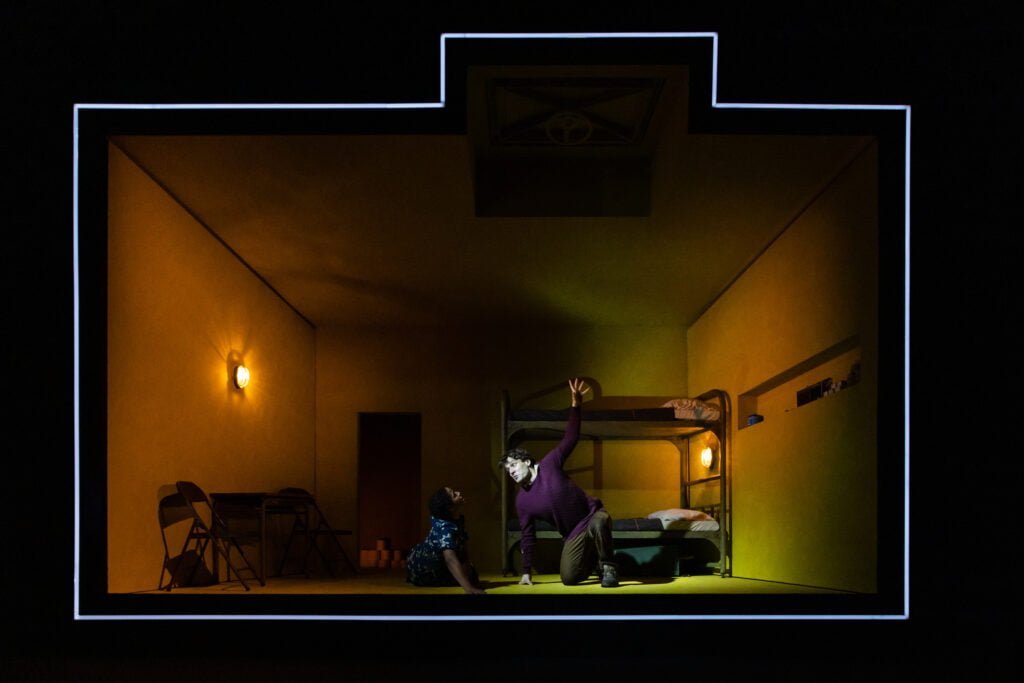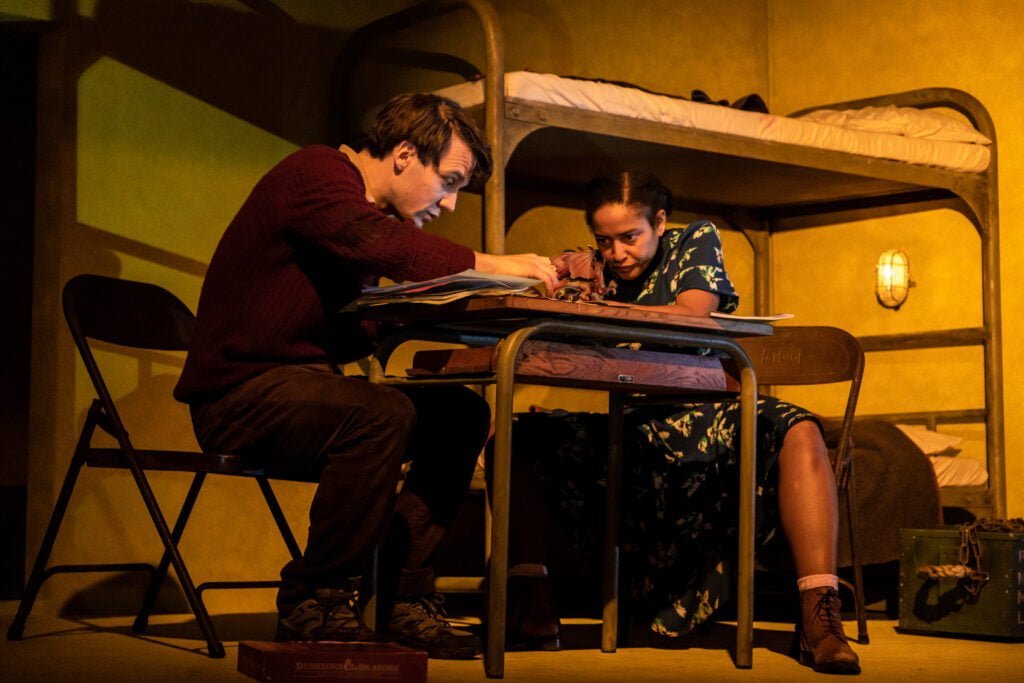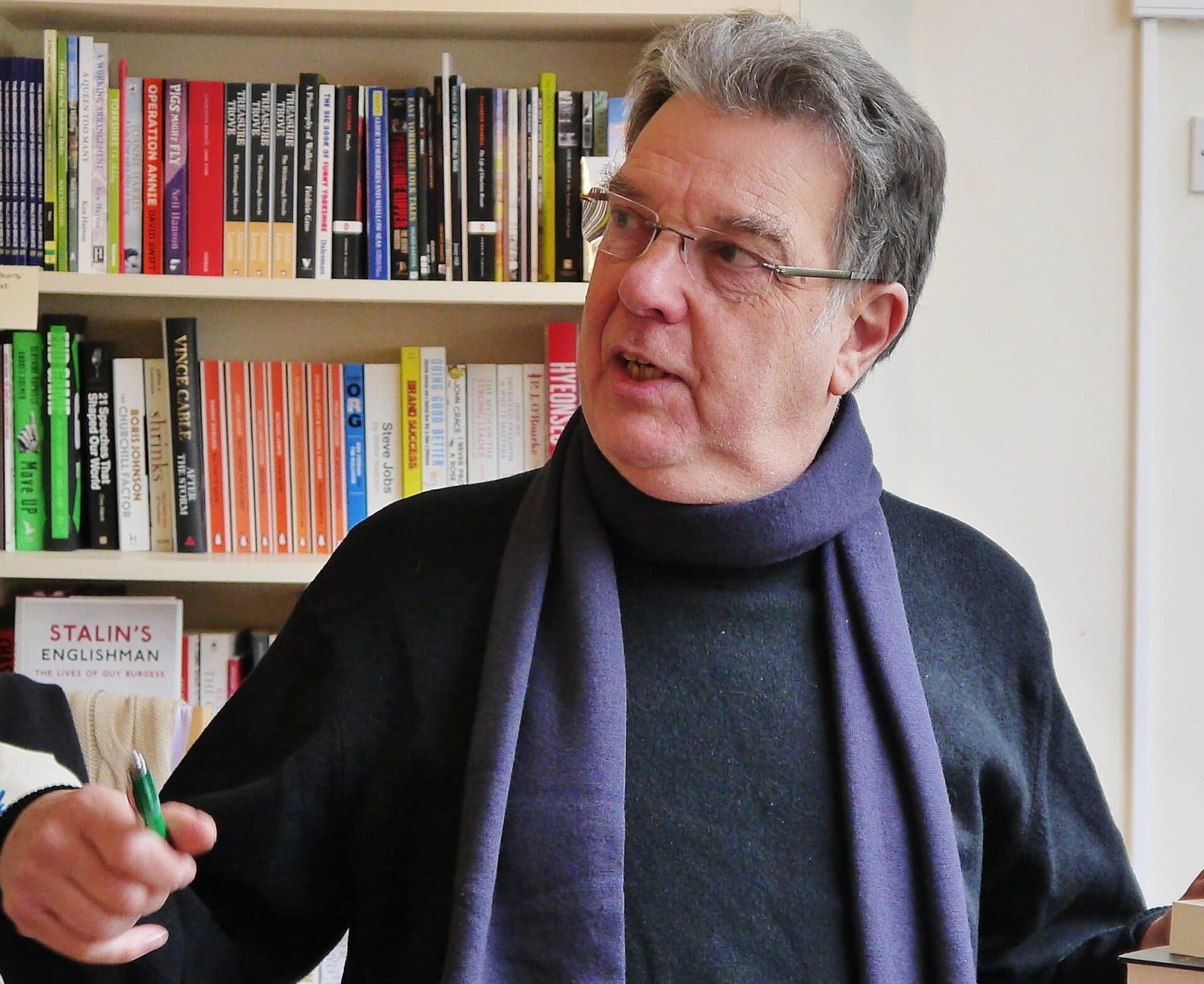Surviving Catastrophe
“Sometimes I used to look at him smiling there and I’d think to myself, ‘The only reason you’ve got any of this is because I don’t come up behind you with an ice pick and shove it into the base of your skull.”
Mark

At first sight, After the End looks uncannily topical. How on earth did playwright Dennis Kelly predict that just before he opened at the Theatre Royal, Stratford East, the nuclear holocaust we have dreaded for three quarters of a century would suddenly feel very close indeed?
The advance publicity promised “a chilling post-nuclear play” and for the first half hour I thought that was what we were going to get. But it’s not that at all. It’s not even a play about how two people survive Armageddon together. Nuclear war is just a dramatic device, like the snowstorm in The Mousetrap, to enable the writer to trap people together in a confined space.
About half an hour into After the End, doubt is raised about whether the nuclear holocaust has really taken place at all, or whether Mark invented it in order to keep Louise in his sealed nuclear bunker with him.
The play is really about the horrible things a nerdy and evil man might do to a woman if he could get her alone. It reminded me of a tremendous 1965 film, The Collector, in which a nerdy clerk captures and imprisons an attractive woman whom he has long admired from afar.
Once you have understood what it is, After the End is a rather good play. The first half hour or so is the best part, with Mark’s miseries and insecurities on full display as he reveals how much he hates a man in whom Louise has shown an interest, and he tries to force her to play his childhood game Dungeons and Dragons with him, threatening to deprive her of food if she refuses. The scene where, with hunger gnawing at her insides, she finally plays the wretched game, is as delightful a piece of darkly funny writing as you’ll find anywhere.

From there the play gets progressively darker until at last, inevitably, he rapes her. Finally – the weakest part of the play – there is a kind of resolution.
In a two-hander, the actors have to be really good. They are. Amaka Okafor does not offer us a paragon, but a lively, funny, spontaneous woman with weaknesses and needs and wants, and a survival instinct made of steel. Nick Blood does not fall for the temptation of overplaying Mark’s inadequacy and sexual misery, and gives us a sad creature who lies to the world and to himself.
I wished nuclear war had been a little more than just a dramatic device. I wished the two characters were more evenly matched, so that we could care about what happened to both of them, instead of all our sympathies lying with Louise. I wished there were fewer places where the author strained my power to suspend my disbelief.
But still, it was a witty, tense and interesting play, with two wonderful performances, and it was beautifully staged. The set was claustrophobic, so that you felt imprisoned with the characters, and during the blackouts there was a white strip of light round it which held it in. A fine night in the theatre which, nonetheless, left me feeling just a tiny bit cheated.


Francis Beckett is an author, journalist, playwright and contemporary historian. He was the 2009 winner of the Ted Wragg Award for lifetime achievement in education journalism.
His latest two plays are A Modest Little Man (about Clement Attlee) and Vodka with Stalin.
Production Notes
After the End
Written by Dennis Kelly
Directed by Lyndsey Turner
Cast
Starring:
Amaka Okafor
Nick Blood
Creatives
Director: Lyndsey Turner
Designer: Peter McKintosh
Lighting Designer: Tim Lutkin
Sound Designer and Composer: Tingying Dong
Fight Director: Bret Yount
Sound Design Mentor: Paul Arditti
Information
Running Time: One hour 35 minutes without an interval
Booking to 26th March 2022
Theatre:
Theatre Royal Stratford East
Gerry Raffles Square
Stratford
London E15 1BN
Website: stratfordeast.com
Tube: Stratford
Reviewed by Francis Beckett
at Stratford East
on 2nd March 2022
